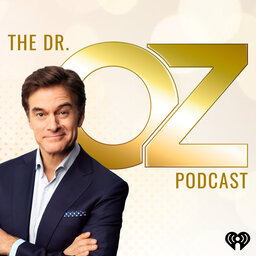Memory Master Jim Kwik on Boosting Brain Power
AMERICA'S DOCTOR: The Dr. Oz Podcast
Dr. Oz's honest, direct interview style, always anchored in health and wellness, has spotlighted hundreds of incredible stories from the health and we…128 clip(s)
Loading playlist
He is one of world's top memory experts, Jim Kwik, founder of “Kwik Learning” and host of “The Kwik Brain Podcast,” is a celebrity brain coach to notables that include Elon Musk, Will smith, even the cast of The X-Men.
In this interview, Jim shows everyone the “kwik” and simple ways they can boost their brain power and increase their memory.
Learn more about your ad-choices at https://www.iheartpodcastnetwork.com
In 1 playlist(s)
AMERICA'S DOCTOR: The Dr. Oz Podcast
Dr. Oz's honest, direct interview style, always anchored in health and wellness, has spotlighted hun…Social links
Follow podcast
Recent clips

What Dr. Oz and Deepak Chopra Have Learned From Each Other
36:27

Dr. Josh Axe on the Power of Collagen
19:44

Dr. Andrew Weil on Matcha Tea and Psychedelics for Depression
20:17
 AMERICA'S DOCTOR: The Dr. Oz Podcast
AMERICA'S DOCTOR: The Dr. Oz Podcast